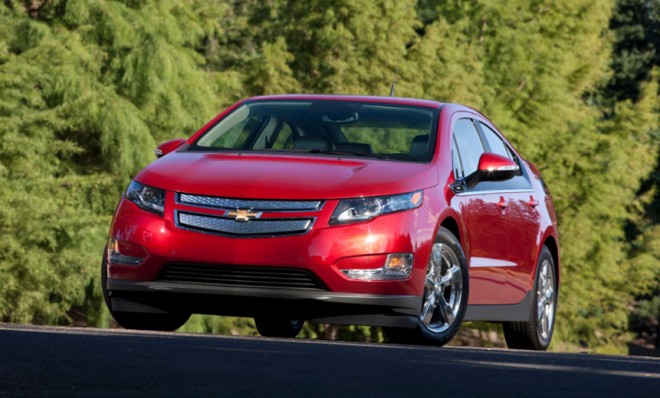General Motors joins the electric car price war: Time to buy?
Tax rebates and lower costs have made the so-called cars of the future more attractive

A free daily email with the biggest news stories of the day – and the best features from TheWeek.com
You are now subscribed
Your newsletter sign-up was successful
On Tuesday, General Motors sliced $5,000 off the cost of the Chevy Volt, joining a price battle between automakers trying to move their plug-in models off the lot.
The 2014 Volt will cost $34,995, and as little as $27,495 after federal tax incentives, which overall represents a 13 percent discount from the previous model.
The move is in line with the competition in the electronic car market. Since January, Nissan has cut the price of the Leaf by $6,000; Honda has trimmed the lease price of the Fit by one-third; and Ford has taken 10 percent off the price of its Focus.
The Week
Escape your echo chamber. Get the facts behind the news, plus analysis from multiple perspectives.

Sign up for The Week's Free Newsletters
From our morning news briefing to a weekly Good News Newsletter, get the best of The Week delivered directly to your inbox.
From our morning news briefing to a weekly Good News Newsletter, get the best of The Week delivered directly to your inbox.
Two factors are driving prices down. The first is lower manufacturing costs. "We have made great strides in reducing costs as we gain experience with electric vehicles and their components," said Don Johnson, GM's U.S. vice president of Chevrolet sales and service. "We want to pass those cost savings back to consumers, and we have done that with the 2014 model."
Second, carmakers are trying to boost demand following disappointing sales of electric cars.
Electric vehicles have been hailed as a way for consumers to avoid high gas prices, all while reducing the country's addiction to foreign oil. But as oil production rises in the U.S., gas prices have remained pretty stable. Meanwhile, low-cost compact cars have become even more fuel-efficient; the Chevrolet Cruze, for example, goes for around $17,170.
As a result, carmakers have had to reel in their goals, and sell their electric vehicles at a loss. Two years ago, GM forecast it would build 60,000 Volts in 2012, but ended up selling just 23,461. And with plug-ins making up just 0.54 percent of the auto market, sales of other vehicles have had to absorb the losses.
A free daily email with the biggest news stories of the day – and the best features from TheWeek.com
So is now the time to buy for eco-conscious consumers? "Automakers can’t go on losing money with each EV sale indefinitely," says Brad Tuttle at TIME. But there are a lot of other factors to consider:
The hope is that, within a few years, production prices on electric cars (batteries especially) will decrease, allowing automakers to lower MSRPs without taking a bath on each sale. Driving range is expected to increase, the time required to recharge cars will fall, and the infrastructure of charging stations should improve, all of which will make EV ownership more attractive to drivers. It’d help the EV cause if gas prices rose as well, making the cost of recharging a vehicle cheaper and cheaper compared to filling up at the pump. [TIME]
Until updates go into effect, you're better off leasing, says Tuttle, "not only because lease deals are so inexpensive nowadays, but because consumers who lease don’t risk getting stuck long-term with outdated technology."
Carmel Lobello is the business editor at TheWeek.com. Previously, she was an editor at DeathandTaxesMag.com.